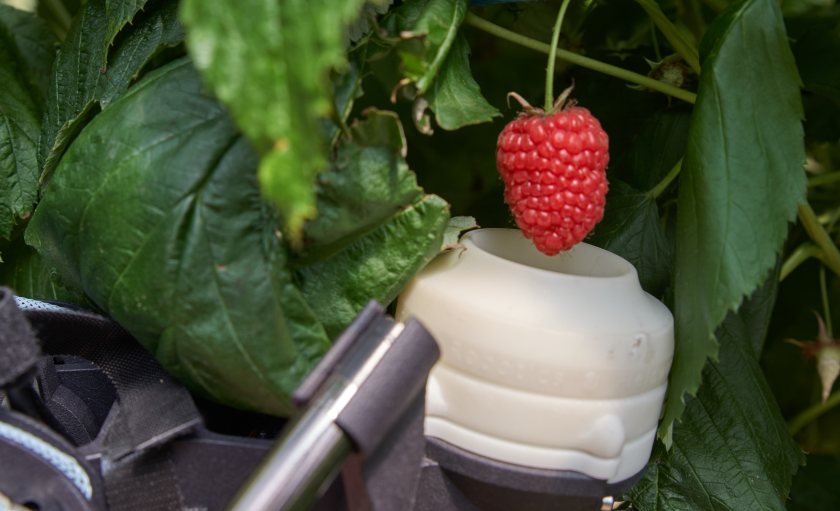
British developers behind world-first technology that autonomously harvests raspberries have been awarded a further £600,000 grant by the government.
The fund will support the development of Fieldwork’s next autonomous model and has two aims: to enhance the AI-powered vision of the robot and to improve its decision-making capabilities.
The £600,000 grant is the second government grant that Cambridge-based Fieldwork Robotics has won in the last six months.
The updated robotic system will have enhanced AI capabilities, meaning that the model will have the capacity to work in a fleet with one operator running multiple robots across the field.
According to Fieldwork, this significantly reduces the labour intensity of the harvesting process and improves harvesting efficiency.
Until now, the cameras on the agri-tech firm's robots have mostly utilised the human visual spectrum, mimicking the ability of a human harvester.
This project, however, will incorporate technology that utilises wavelengths invisible to the human eye.
This development will improve the robot’s ability to detect crop and determine ripeness, according to Fieldwork.
Development of these two functions will make the robot more autonomous and more efficient as an alternative to human harvesting.
In addition to improving the vision of the robot, the project is also targeting decision making within the robots in order to improve their autonomy.
The expectation is that improved AI decision making will allow the robots to operate for long periods of time with minimal human oversight, making the robots increasingly cost-effective and efficient.
Martin Stoelen, Fieldwork Robotics founder said harnessing the robot’s capacity for autonomy was key to scaling up the firm's offering.
"The combination of these two key steps in software development – super-human vision and improved autonomous decision-making – will make Fieldwork’s technology an even more commercially viable option for growers," he said.
“We are currently on track to complete field trials within the next quarter and we are excited to see the real-world applications of our technology continue to develop.”
The £600,000 grant was awarded by Defra and Innovate UK.
